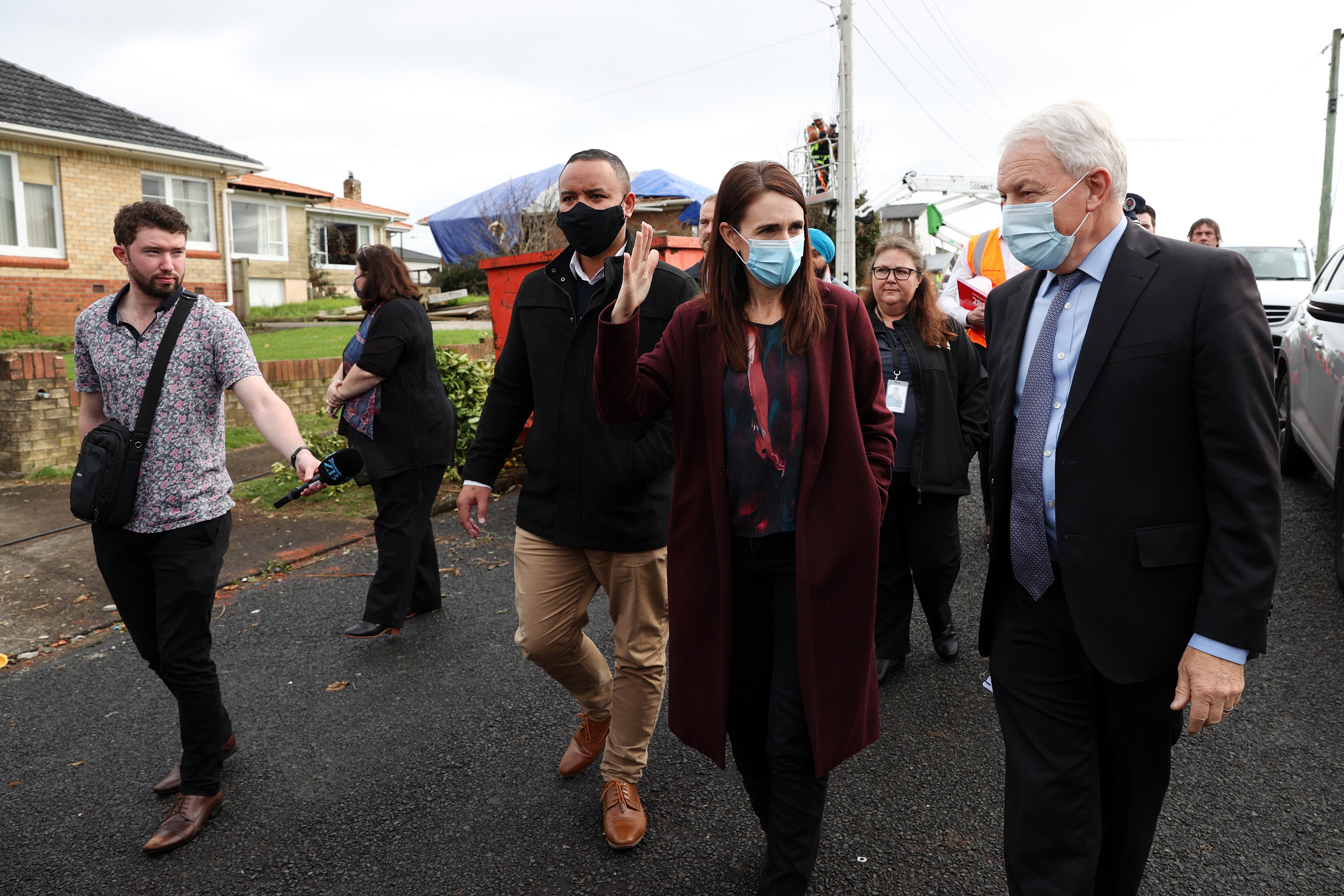New Zealand city becomes one of first in world to introduce a ‘climate tax’ for residents
Proceeds will go towards greening Auckland with more trees, buses and routes for cyclists

Your support helps us to tell the story
From reproductive rights to climate change to Big Tech, The Independent is on the ground when the story is developing. Whether it's investigating the financials of Elon Musk's pro-Trump PAC or producing our latest documentary, 'The A Word', which shines a light on the American women fighting for reproductive rights, we know how important it is to parse out the facts from the messaging.
At such a critical moment in US history, we need reporters on the ground. Your donation allows us to keep sending journalists to speak to both sides of the story.
The Independent is trusted by Americans across the entire political spectrum. And unlike many other quality news outlets, we choose not to lock Americans out of our reporting and analysis with paywalls. We believe quality journalism should be available to everyone, paid for by those who can afford it.
Your support makes all the difference.One of New Zealand’s largest cities, Auckland, has proposed a climate tax for its residents in what is likely the world’s first such tariff. The proceeds will go into the city’s fund to support efforts to reduce emissions and generally make the city greener.
Auckland mayor Phil Goff announced the plan on Wednesday, and said that homeowners will be taxed on average a little over one New Zealand dollar per week to contribute towards an eventual billion-dollar climate fund set up to overhaul the city’s infrastructure, including decarbonisation of the transport system and adding more trees.
The new fund aims to decarbonise the ferry fleet, which accounts for 21 per cent of Auckland’s emissions from public transport, add more buses and routes for pedestrians and cyclists, besides adding trees and green covers in the city.
The proposed fund will be partially funded by the proceeds of this tax, called the Climate Action Targeted Rate, which will raise around $574m over 10 years, with another $471m coming from central government co-funding and other sources, according to details shared by Mr Goff.
The tax rate for a person with a median-value home worth NZ $1.18m (£606,520) would be around NZ $1.10 (57p) a week.
“The Climate Action Targeted Rate adds weight, meaning and mana to our Climate Emergency declaration and will guarantee direct and ring-fenced funding to cut our emissions up until 2032, including a more than half-billion-dollar boost to deliver new and frequent bus services across the region,” Mr Goff said.
“While nobody relishes the idea of paying more rates, we’ve heard clearly from Aucklanders that they want us to do more on climate change and to improve our public transport system. We must be able to say to future generations that we used every tool in the toolbox to tackle the climate crisis,” the mayor added.
The rate is a prominent part of the “mayoral proposal” that will be voted on next year. Mr Goff said the main motives of the climate rate — especially the ones related to public transportation — will also help residents in other ways, like cheaper travels.
“This would mean 170,000 more Aucklanders — 10 per cent of the population — not previously well served by public transport would live within 500 metres of a frequent bus route,” he said. “Encouraging a shift to public transport is the most effective way of reducing transport emissions, which make up more than 40 per cent of our city’s emissions profile.”
Mr Goff added that the city’s emissions are “not remotely tracking in line with our target to reduce emissions by 50 per cent by 2030”, and so these measures cannot be delayed.
“Long after Covid-19 ceases to be a major threat to us, there will be the ongoing crisis caused by climate change. We can’t afford to put off any longer the action needed to avoid a climate disaster,” he added.
While taxes related to climate change are in place in many countries and mostly exist in the form of carbon tax levied on corporates on the basis of their greenhouse gas emissions, Auckland authorities believe this kind of taxing policy is one of the first in the world, and definitely a first for the country.
Join our commenting forum
Join thought-provoking conversations, follow other Independent readers and see their replies
Comments